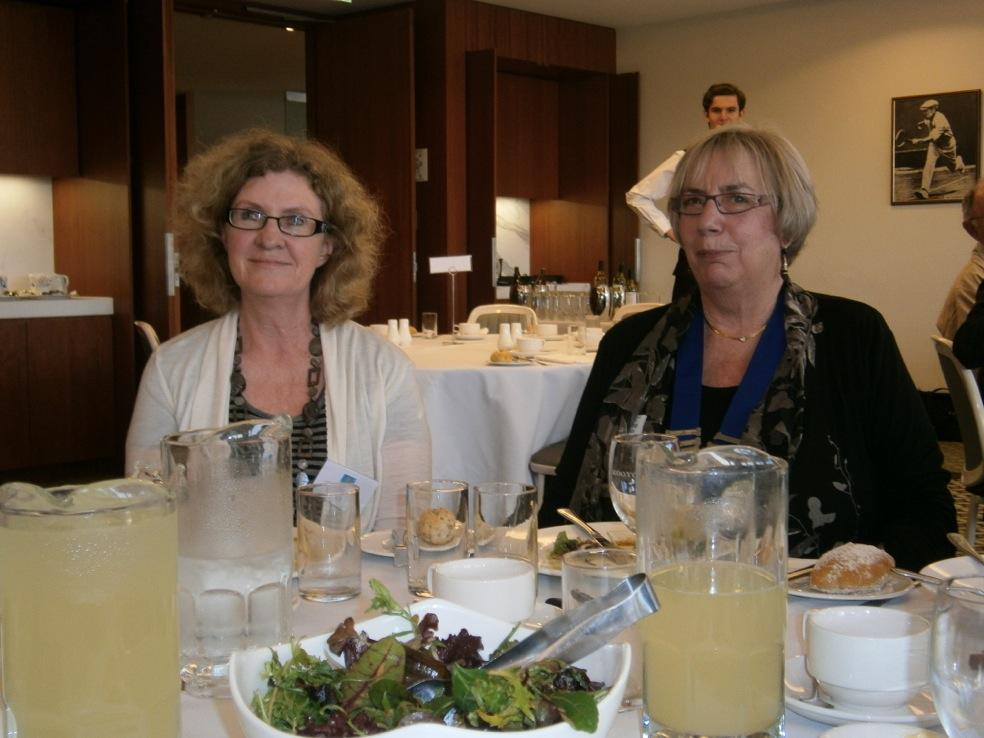Carbohydrates - Do You Burn Them or Store Them?
 |
There is not one ideal diet; it depends on one’s metabolism and behaviour. Clearly high performance athletes need energy but no so the office worker. Dietician Jennifer Elliot talks about baby boomers and weight, and the changes to our society that have seen many boomers evolve from carbo “burners” to carbo “storers”. |
Jennifer with a Bachelor of Science and training and many years employment as a dietician talked to us on the changing pattern of perceived best eating habits and used the Baby Boomer generation to demonstrate her ideas.
Jennifer who resides on the South Coast of New South Wales centred around Narooma and Moruya lead us through the topic by reference to her own children and the contrast between one who could eat anything without gaining weight and the other with opposite characteristics.As the title suggested Jennifer's focus was on the weight around the girth and the impact of how insulin release following food intake varies from person to person and can influence fat retention.
She broadly put us into one of two types of person, the carbohydrate burner and the carbohydrate storer. Conceptually put, the highly energetic former has the happy disposition whereby the converted starch and sugar intakes as glucose goes directly to the muscle tissue and is consumed (burnt up) as energy and hence avoids weight gain. The latter type has the greater tendency to convert the glucose into fat so that one exhibits characteristics such as limited energy, sleep apnoea, mood swings, and high blood pressure and so on.
Baby Boomers who were mostly raised under the three directions of (1) drink milk, (2) not too many lollies and (3) eat your crusts and clean up all your plate, and had very active sports participation in absence of TV, computers and passive entertainment. Changes to society have seen many of these evolve from carbo “burners” to carbo “storers” even overriding the intrinsic metabolic propensity of the fortunate carbo “burners”.

Jennifer explained of the value of a diet which had the impact of keeping glucose levels from being overly erratic during the day. This meant than a high protein diet low carbohydrate diet and a careful but not draconian daily eating plan can negate the weight gain potential faced by the carbo storer.
Many of the food combinations which Jennifer had found useful in her own family and in her professional experiences with patients/clients have been catalogued along with a more detailed description of the factors behind blood sugar levels in the delightful book which she has written. Titled “Baby Boomers Bellies and Blood Sugar the book is probably best described as a medical/cookbook hybrid.
Questions from the audience doubtless touching on many personal concerns were bravely and helpfully discussed by Jennifer but always reiterating the points of the very complex and variable nature at the individual level of the human-food interaction.